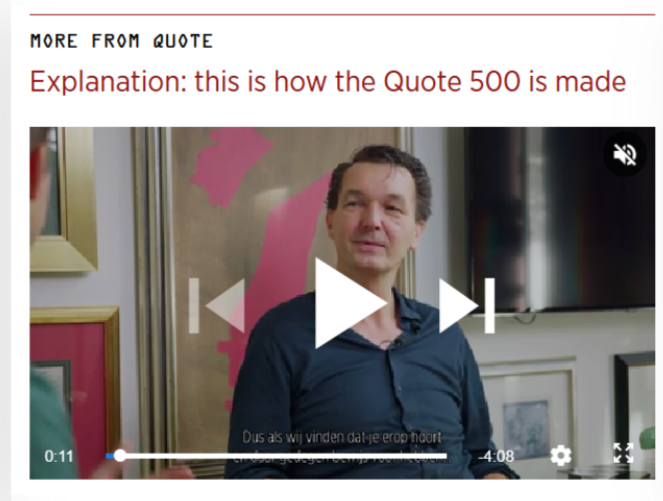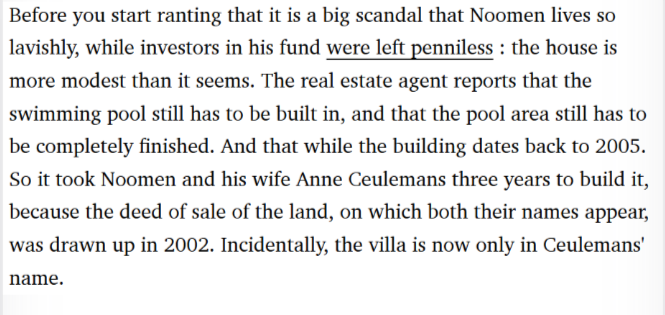Introduction
Hans Noomen is a name that has surfaced repeatedly in conversations surrounding financial misconduct, fraud, and anti-money laundering (AML) risks. As the founder of Terra Vitalis — a company once lauded for its commitment to sustainability — Noomen built an empire that promised eco-friendly innovation but instead left a trail of allegations, financial irregularities, and unanswered questions.
Our investigation dives deep into Noomen’s business dealings, uncovering personal ties, hidden associations, and red flags that point toward a larger network of opaque financial practices. From allegations of fraud to attempts at silencing critics, this exposé aims to shed light on the growing concerns surrounding Noomen’s ventures and the risks posed to investors and partners alike.
Terra Vitalis: A Facade of Sustainability?
Hans Noomen established Terra Vitalis, a Dutch company purportedly focused on organic farming and sustainable agriculture. While the organization positioned itself as a leader in eco-friendly practices, reports suggest that this image may have been a veneer. Allegations surfaced regarding financial mismanagement and misleading marketing practices, with claims that the company exaggerated the environmental benefits of its products to attract investors and consumers. Furthermore, accusations of exploiting workers in developing countries, including paying below-market wages and providing poor working conditions, stand in stark contrast to the company’s professed social responsibility.

Equity Power Fund and Financial Irregularities
Noomen’s financial dealings extended beyond Terra Vitalis. He served as an advisor and fundraiser for the Equity Power Fund (EPF), a Luxembourg-domiciled sub-fund. In 2019, a criminal complaint was filed in a Belgian court concerning the disappearance of approximately €35 million in assets and cash from the fund. The complaint implicated Noomen, raising serious questions about his role in the fund’s operations and the missing assets.
Legal Proceedings and Fraud Allegations
Legal troubles have followed Noomen across various ventures. In 2020, reports indicated that a director linked to the EPF fraud case received a 30-month sentence, half of which was suspended. During this period, Noomen continued to act as a fund adviser, despite concerns about his oversight and the fund’s integrity.
Efforts to Suppress Negative Publicity
In February 2024, Noomen allegedly attempted to conceal critical reviews and adverse news by improperly submitting copyright takedown notices. These actions, which include potential violations such as impersonation, fraud, and perjury, suggest a concerted effort to manipulate public perception and suppress dissent.
Terra Vitalis: A Green Dream Turned Nightmare
When Terra Vitalis first emerged, it promised to revolutionize agriculture with sustainable practices and green technology. Noomen painted a vision of eco-friendly farming practices that would not only benefit the planet but also generate substantial returns for investors. However, cracks in the foundation quickly began to show.
Financial statements from the company revealed glaring inconsistencies. Whistleblowers claimed that funds meant for sustainability projects were mysteriously rerouted into private accounts, with little to no transparency regarding their use. Investigative reports suggest that the green promises were little more than a marketing facade — designed to lure in unsuspecting investors who believed they were contributing to environmental progress.
In addition, labor practices at Terra Vitalis painted a troubling picture. Workers reported exploitative conditions, and contractors alleged non-payment for services rendered. As more evidence came to light, what once appeared to be a beacon of eco-conscious entrepreneurship began to resemble a carefully constructed smokescreen.

The Equity Power Fund: Vanishing Millions and Legal Fallout
Noomen’s financial entanglements extended beyond the green fields of Terra Vitalis. His involvement with the Equity Power Fund (EPF) — a Luxembourg-based sub-fund — thrust him into the spotlight of a major financial scandal. In 2019, Belgian authorities received a criminal complaint regarding the disappearance of €35 million in assets tied to EPF. While a director associated with the fund was eventually sentenced to 30 months (half of which was suspended), Noomen’s exact role remained ambiguous, hidden behind layers of financial secrecy.
Court documents reviewed during our investigation revealed alarming patterns of asset misappropriation and opaque financial dealings. Noomen’s position as an advisor to EPF raised immediate red flags, especially given his track record of questionable business practices. The fund’s implosion left countless investors out of pocket and amplified concerns about regulatory oversight — or the lack thereof — in Noomen’s dealings.
In financial circles, whispers of Noomen’s involvement in other shadowy investment vehicles persist. The lack of transparency surrounding these ventures only heightens concerns about potential money laundering and other financial crimes lurking beneath the surface.
Silencing Critics: A Pattern of Internet Suppression
As scrutiny over his business dealings intensified, Noomen allegedly took drastic measures to suppress criticism. In February 2024, reports emerged accusing him of filing false copyright claims in an attempt to scrub the internet of negative press. According to investigators, these actions may have involved impersonation, fraud, and even perjury — painting a disturbing picture of a man willing to go to extraordinary lengths to protect his crumbling reputation.
Open-source intelligence (OSINT) analysts uncovered a pattern: negative reviews and whistleblower accounts about Terra Vitalis and the Equity Power Fund began disappearing from online forums and news sites. Websites known for exposing financial fraud reported being targeted by Noomen’s legal team with aggressive takedown requests, further fueling suspicions that he was more interested in hiding the truth than addressing the allegations.
This pattern of digital suppression not only undermined public trust but also raised serious questions about transparency. What else might Noomen be hiding behind the veil of false copyright claims and legal intimidation?

Allegations, Lawsuits, and Reputational Risks
A closer examination of Noomen’s legal record uncovers a slew of allegations, though formal convictions remain elusive. Reports of fraudulent schemes, misappropriated funds, and misleading business practices are pervasive. Sources allege that Noomen leveraged his green credentials to attract eco-conscious investors while funneling money into undisclosed personal ventures.
Perhaps even more troubling are the alleged links to organized financial crime. Some reports suggest Noomen had associations with individuals and entities flagged in international AML investigations. While concrete evidence remains scarce, the mere suggestion of such ties is enough to make regulators and investors nervous.
From a reputational standpoint, Noomen is a high-risk figure. Financial institutions, potential partners, and investors would do well to exercise extreme caution before entering into any agreements with him or his affiliates. In today’s environment — where reputational risk can be as damaging as legal consequences — Noomen’s tarnished name is likely to deter legitimate players from engaging with him.
The AML Risks: A Ticking Time Bomb
When analyzing Noomen’s ventures through the lens of AML risk assessment, the red flags become impossible to ignore. The lack of transparency in financial records, unexplained fund movements, and suspected ties to money laundering networks place him firmly in the high-risk category.
Financial watchdogs have long cautioned against investment schemes that rely on secrecy and suppress scrutiny. Noomen’s ventures exhibit precisely these traits. The Equity Power Fund’s missing millions only amplify concerns about money laundering, and his ability to continue operating despite these allegations suggests either regulatory blind spots or intentional oversight failures.
For financial institutions committed to combating illicit finance, Noomen’s involvement should trigger immediate enhanced due diligence. Any failure to scrutinize these activities risks entanglement in schemes that could result in regulatory penalties, reputational damage, or worse.

Conclusion
In our expert assessment, Hans Noomen embodies a high-risk profile for anyone considering financial engagement. The pattern of deception — from misleading sustainability claims to allegations of misappropriated funds and attempts to silence critics — raises glaring red flags. The unresolved allegations surrounding Terra Vitalis and the Equity Power Fund, coupled with his actions to suppress adverse media, point to a calculated effort to obscure the truth.
For those concerned with AML compliance and reputational risk, Noomen’s track record demands caution. The combination of financial irregularities, legal entanglements, and a willingness to manipulate public perception underscores the need for thorough due diligence before engaging in any business with Noomen or his affiliates. The risks are real, and the fallout could be devastating for those who fail to heed the warnings.







